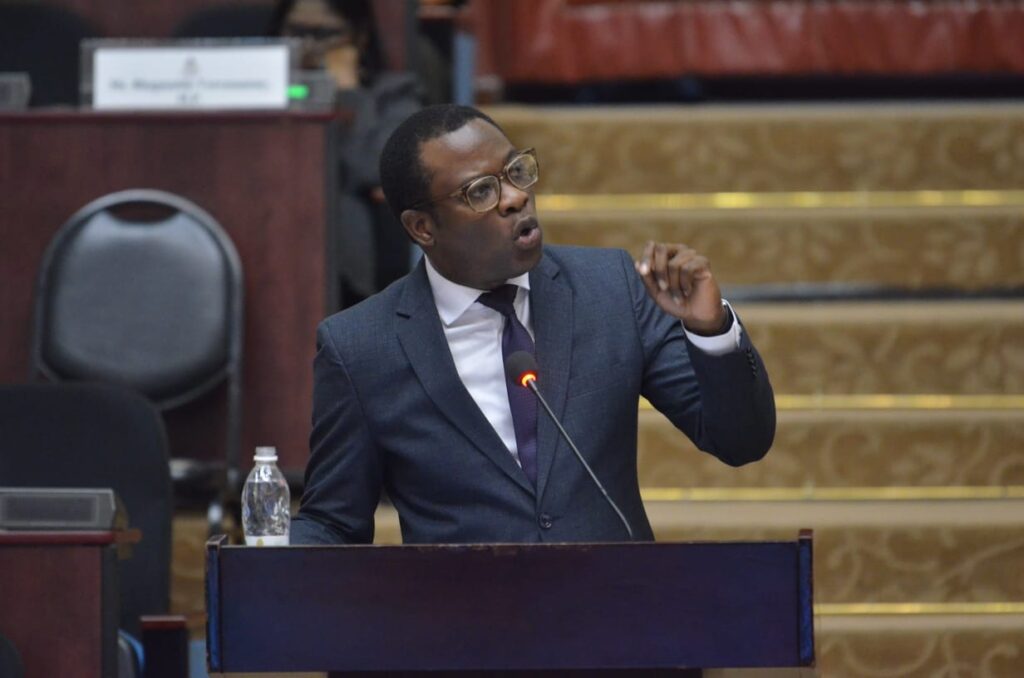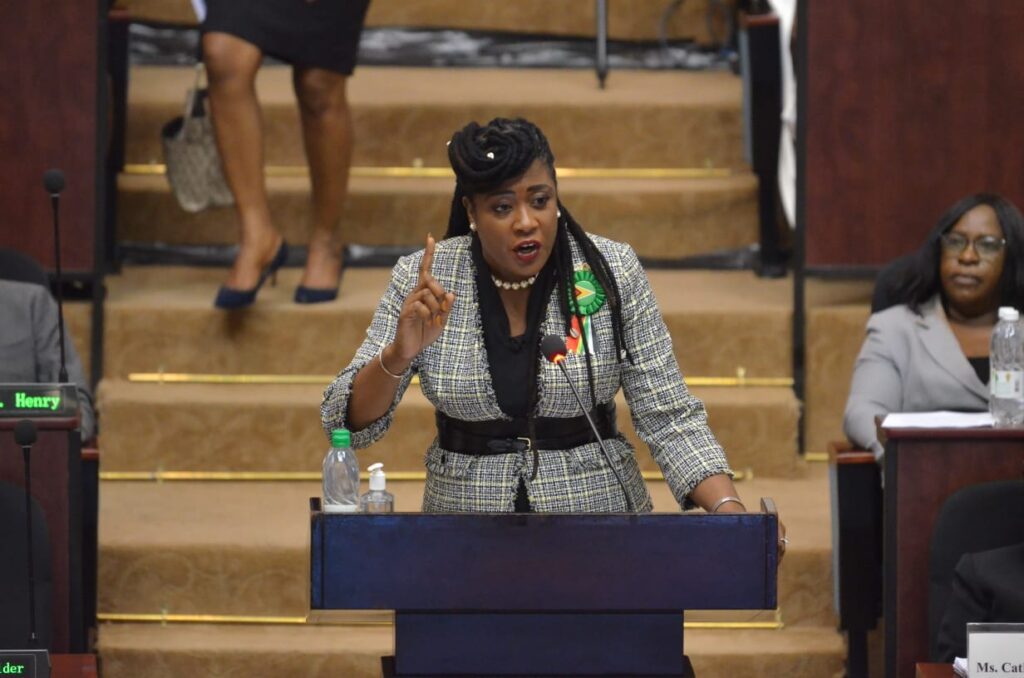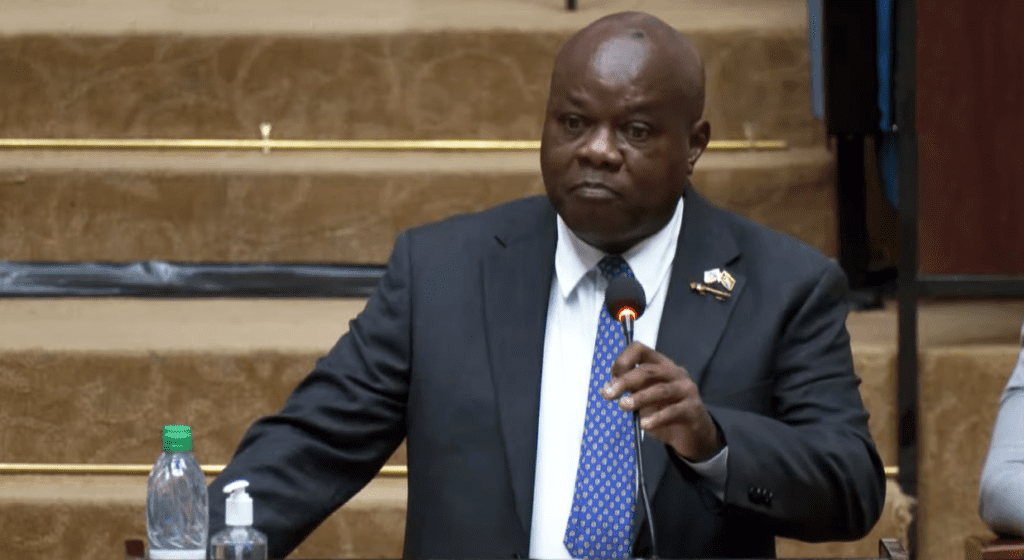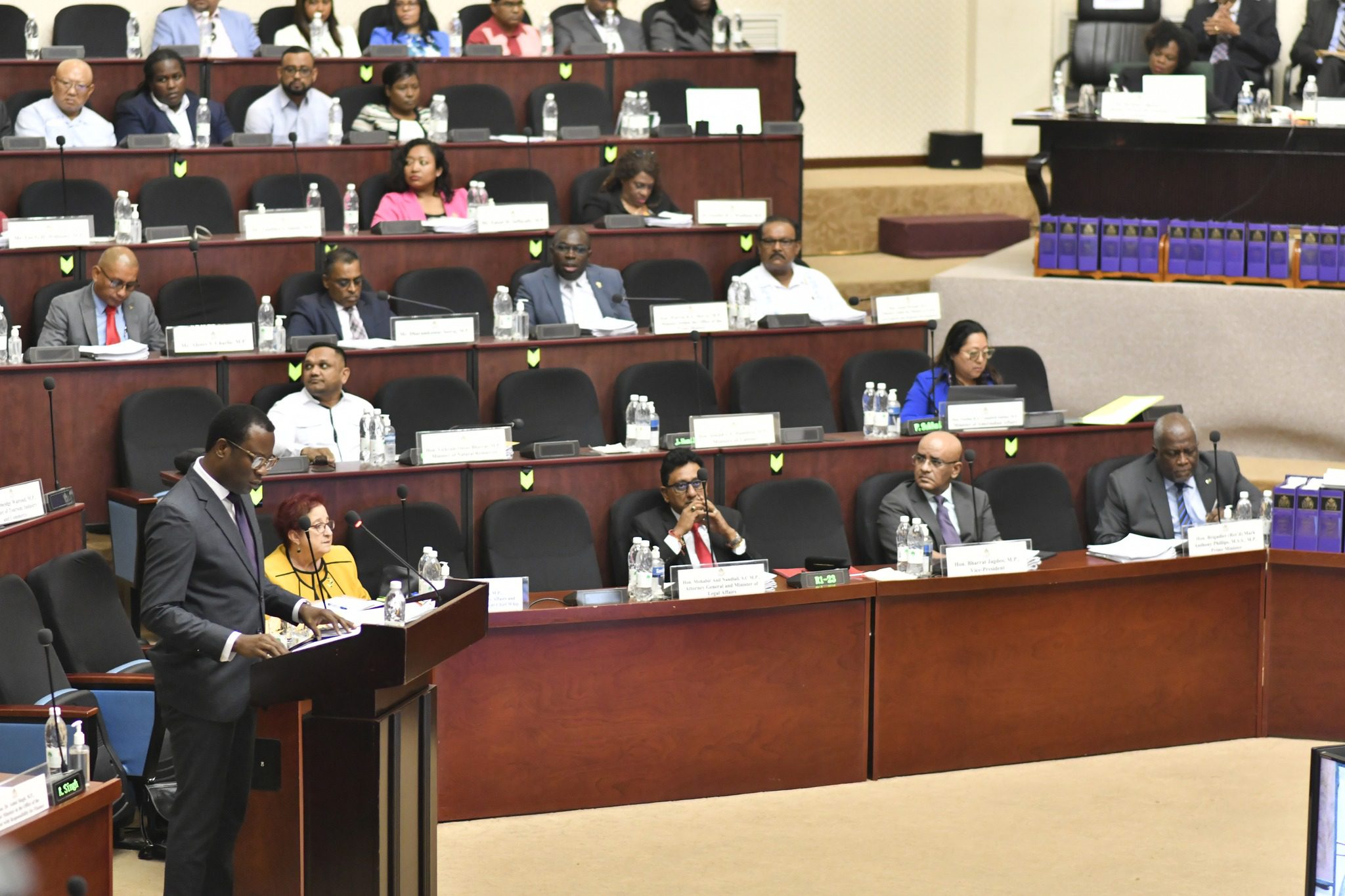In a display of unity, Guyana’s National Assembly has cast a unanimous vote, reaffirming support for the government’s stance on the longstanding territorial controversy with Venezuela. This rare consensus is a striking display of solidarity among political parties that are almost always at odds. They have shown time and time again, that they will put grievances aside when it comes to defending Guyana’s Essequibo region from Venezuela’s overtures.
The motion, championed by Hugh Todd, Minister of Foreign Affairs and International Cooperation, fortified Guyana’s support for the 1899 Arbitral Award, which historically delineated the boundary between Guyana and Venezuela.

“The 1899 Arbitral Award is final, perfect, and complete…That is our sovereignty. Our foremost foreign policy objective is the preservation of our sovereignty and territorial integrity. And we stand by that as one people, one nation, and one destiny,” stated Todd. He also emphasized the significance of the Geneva Agreement of 1966, which outlined the path for a legal and peaceful resolution to the controversy.
Guyana not responding to Venezuela’s jingoism on border controversy – Jagdeo | OilNOW
In line with the execution of this agreement, the government of Guyana referred the matter to the International Court of Justice (ICJ). The Court has since twice affirmed its jurisdiction to adjudicate on the matter brought before it by Guyana, to rule on the validity of the 1899 Arbitral Award—a move that Venezuela vehemently opposes.
In defiance of international law and the ongoing legal proceedings, Venezuela scheduled a referendum proposing to seek citizens’ support to annex Guyana’s territory of the Essequibo. This move was addressed in the parliamentary motion, described as “provocative, unlawful, void, and of no international legal effect” and “contemptuous of the legal process prevailing before the International Court of Justice.”
Several parliamentarians on the side of the Guyana government and opposition argued in favour of the motion.
Shadow Minister of Foreign Affairs, Amanza Walton-Desir, likened the threat Venezuela poses to Guyana, to the story of David and Goliath. “Venezuela, for all intent and purposes, is a formidable Goliath. Our beloved Guyana, Mr. Speaker, is a young state with a peace-loving population of less than a million people, a small defence force, and we’re a nation on the cusp of achieving our full potential,” she said.

Walton-Desir, who began her presentation with a brief rendition of Guyana’s Song of the Republic, reaffirmed her and the opposition’s unwavering support for the government’s stance on the Venezuela issue.
Guyana’s Leader of the Opposition, Aubrey Norton, stated, “the people of Guyana have our full support for this resolution.” He added, “We need to let all our children know that we do not have a border dispute with Venezuela. Our borders were settled.”
Guyana-Venezuela land boundary was settled 124 years ago

The Opposition Leader explained that while Venezuela’s claim for the Essequibo territory is unfortunate, the Bolivarian Republic’s aggression “steeled [the] nation and made us more hardened and more experienced to take on the challenges of national development, and skillful at holding the available diplomatic and national security instruments for the survival of this nation.”
The motion passed by the National Assembly also extends support for the government’s formal approach to the ICJ, requesting provisional measures to bar Venezuela from seizing Guyana’s Essequibo region or any other part of its territory. The ICJ has announced that public hearings will take place on Tuesday, November 14, 2023, at the Peace Palace in The Hague, concerning Guyana’s request.
Moreover, the Assembly’s vote calls for deeper national engagement on sovereignty issues and acknowledges international support for Guyana’s territorial rights.
Meanwhile, Maduro and other officials continue to hold rallies in Venezuela to drum up support for the upcoming referendum. Notably, Maduro recently stated that he does not accept the ICJ’s jurisdiction. Venezuela’s National Electoral Council also intends to hold a mock vote ahead of the December 3 referendum.



